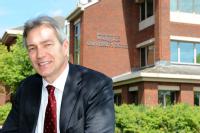£5.2 million funding boost for food security and biomedical research in Life Sciences
 The School of Life Sciences
The School of Life Sciences  at the University of Warwick has won a series of funding awards totalling £5.2 million for research into a broad range of areas including respiratory viruses, anaerobic digestion and nutrient storage within plant seeds.
at the University of Warwick has won a series of funding awards totalling £5.2 million for research into a broad range of areas including respiratory viruses, anaerobic digestion and nutrient storage within plant seeds.
The last few months have seen a number of new grant wins from funders such as the BBSRC, the Royal Society and the Wellcome Trust to look at areas vital to human and plant health and those with important economic and scientific implications.
Professor John McCarthy, Head of the School of Life Sciences, said: “These injections of funding are testament to the quality of research going on within the School of Life Sciences.
“They cover a wide range of topics but the one thing that unites all of these projects is that University of Warwick researchers are pushing back the frontiers of their disciplines within biosciences and are making valuable contributions to society.”
Professor James Nokes has received £2.5 million in the form of a Wellcome Trust Senior Investigator Award to study how respiratory viruses spread through the human population in a study based in Kenya.
This knowledge can then be used to assist in the design of control programmes such as the optimal targeting of vaccine delivery. The work is to be undertaken at one of the Centres of the Kenya Medical Research Institutes (KEMRI) within the KEMRI-Wellcome Trust Research Programme, where Professor Nokes has been seconded for the last 14 years.
The work will be led by the School of Life Sciences at Warwick together with Warwick Mathematics Institute and in collaboration with the Wellcome Trust Sanger Institute, Cambridge (for virus whole genome sequencing) and the ISI Foundation, Italy (analysis of complex systems).
A second research grant sees Professor Orkun Soyer at Warwick, together with partners at the University of Southampton, receive £700,000 from the BBSRC to set up a new Anaerobic Digestion Network.
The network will support collaboration among scientists and the UK's growing anaerobic digestion industry through pump-prime funds and meetings.
The research will address challenges in improving process efficiencies and broadening the range of acceptable feedstocks for anaerobic digestion.
Professor Soyer’s research in particular aims to design and engineer synthetic microbial communities that can significantly increase the robustness of biotechnological conversions including those seen in anaerobic digestion.
Dr Soyer is also leading the Warwick involvement in the newly-announced EPSRC Centre for Doctoral Training in Synthetic Biology, a collaboration between the Universities of Oxford, Bristol and Warwick.
Involving academics from the School of Life Sciences and other departments at Warwick, the centre will combine world-leading expertise in engineering and the physical and life sciences to create the next generation of industrial and academic leaders in this important new field. The centre is jointly supported by the BBSRC.
In a separate grant success, Dr Daniel Hebenstreit has received funding from the BBSRC and the Royal Society totalling £800,000 to look at the issue of ‘biological noise’ – the strong variations in the numbers of mRNAs and other important biological molecules among individual cells that are otherwise identical.
It is an unsolved question how cells cope with this background noise. The problem is important not only from the perspective of basic science, it also needs to be studied for synthetic biology approaches as the engineering of gene circuits is greatly impeded by the large amount of noise in biological systems.
The funding from the BBSRC and the Royal Society will make it possible to establish and develop a new technology – single-cell RNA sequencing – at the University of Warwick. By using it to determine single-cell mRNA variation across many different genes, Dr Hebenstreit aims to gain decisive new insights into how biological noise is caused and controlled in cells.
Dr Lorenzo Frigerio has been awarded a total of £470,000 grant from European Research Area Network Coordinating Action in Plant Sciences (ERA-CAPS) to study the endoplasmic reticulum, the area within plant seeds that stores the large amounts of proteins and lipids essential for human and animal nutrition.
He aims to study the factors that determine endoplasmic reticulum shape and also investigate cooperation between the endoplasmic reticulum and other cellular organelles.
Dr Ioannis Nezis has been awarded £370,000 by the BBSRC for research into ageing-related diseases. He will investigate autophagy, the essential process of cellular self-eating used by cells to generate materials and energy when conditions become unfavourable.
Recent studies have indicated that a breakdown of the autophagy system in cells is involved in the development of ageing-related disease.
The research will investigate autophagy during ageing and how it can contribute to the selective disposal of damaged and potentially toxic cellular material which may be the cause of ageing.
Dr Richard Napier has been awarded £360,000 by BBSRC for research into auxin, a hormone involved in almost every part of a plant’s life from embryo to wood.
Working together with the University of Leeds, Dr Napier aims to better understand the proteins which act as auxin receptors. This knowledge can then be used to develop new forms of weed control in agriculture.
ENDS
For further information please contact University of Warwick press officer Anna Blackaby on 02476 575910 or a dot blackaby at warwick dot ac dot uk
For further information please contact University of Warwick press officer Anna Blackaby on 02476 575910 or a dot blackaby at warwick dot ac dot uk
